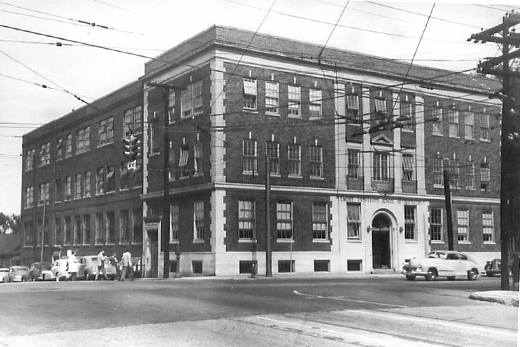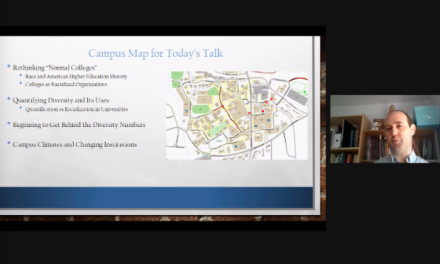Perry Brickman (’51C), who spent a year at Emory Dentistry School, has produced a documentary on the dental school’s anti-Semitism from 1948 to 1961 where the failure rate of Jewish students jumped to 65 percent under the direction of former Dean of the Dental School John Buhler.
Founded in 1916, the Emory Dentistry School closed in 1992 as a result of funding issues and low levels of enrollment.
A 2006 Manuscripts Archives and Rare Books Library (MARBL) exhibit showcasing “Jews at Emory” first inspired Brickman – who was deliberately failed out of the dental school – to take a closer look at the dental school’s relationship with its Jewish students. The exhibit, which was created to celebrate the 30th anniversary of the University’s Jewish Studies program, displayed a graph showing that the failure rate of Jewish students from 1937 to 1944 was low compared to the spike of failure rates from 1948 to 1951.
“It was the first time I’d seen those figures of how many people had flunked,” Brickman said in an Oct. 6 New York Times article. “I had no idea how many there were. It was obvious that it was a systemic problem.”
Brickman then tracked down dozens of Jewish students who had been affected and taped his interviews with them, which resulted in his documentary “From Silence to Recognition: Confronting Discrimination in Emory’s Dental School History.”
The Anti-Defamation League presented the data more than five decades ago, according to a Sept. 20 University press release.
In addition, a book published in the 1960s entitled “Some of My Best Friends …” by Benjamin R. Epstein and Arnold Forster, two former Anti-Defamation League leaders, also explored the anti-Semitism of the dental school.
Despite the book and the available data, Vice President and Deputy to the President Gary Hauk explained that he was unsure of why the issue had never been brought to the public’s attention. He added that the Jewish community experienced tension over whether or not they should publicly press the university on the issue of anti-Semitism.
Hauk said he believes Buhler was nurturing anti-Semitism along with other faculty members who either agreed with his views or did not want to risk their job by going against his influence.
Other incriminating evidence supporting the dental school’s anti-Semitic phase shows through with the application for admission form at that time.
In early 1961, the dental school began to require applicants to specify whether they were Caucasian, Jewish or other on their application form.
“Singling the Jewish population was a clear flag for Emory’s administration that it needed to be addressed,” Hauk said.
Not long after, Buhler resigned. However, Emory’s president at the time, Sidney Walter Martin, failed to acknowledge the correlation between the discovery of the admission form and the dean’s departure.
Brickman’s film will be screened at Emory on Wednesday at 6 p.m. in the Cox Hall ballroom.
Hauk commented that he hopes this documentary will also tell the story about how Emory has changed and evolved over the last decades, while still expressing regret for these incidents of the past.
“It is a way for the University to acknowledge and state its regret for what happened then and for the silence since,” Hauk said.
– By Gina Rubello
The Emory Wheel was founded in 1919 and is currently the only independent, student-run newspaper of Emory University. The Wheel publishes weekly on Wednesdays during the academic year, except during University holidays and scheduled publication intermissions.
The Wheel is financially and editorially independent from the University. All of its content is generated by the Wheel’s more than 100 student staff members and contributing writers, and its printing costs are covered by profits from self-generated advertising sales.






Very good and enlightening article .
I had no idea this was going on at Emory for such a long time. Good article.
If Emory University is sincere about renouncing its checkered past, it should also confront the intellectual forms of prejudice prevailing today at the Society of Biblical Literature (SBL), an Emory-hosted organization. SBL was originally founded as a haven for critical (i.e., historical, non-religious) biblical scholarship, but has been overrun in recent decades by Evangelicals, leading Prof. Ronald Hendel of Berkeley to publicly announce that he was resigning his membership. Many others haven’t attended SBL meetings for years because the stifling, Evangelically-oriented atmosphere of faith-based pseudo-scholarship, as well as the assaults on academic freedom taking place there, make them feel uncomfortable. Despite this situation, SBL continues to be a member of the American Council of Learned Societies, in violation of that group’s basic critical standards. See:
http://chronicle.com/article/Whats-Wrong-With-the-Socie/12369/
and
http://www.academia.edu/822072/Farewell_to_SBL_Faith_and_Reason_in_Biblical_Studies